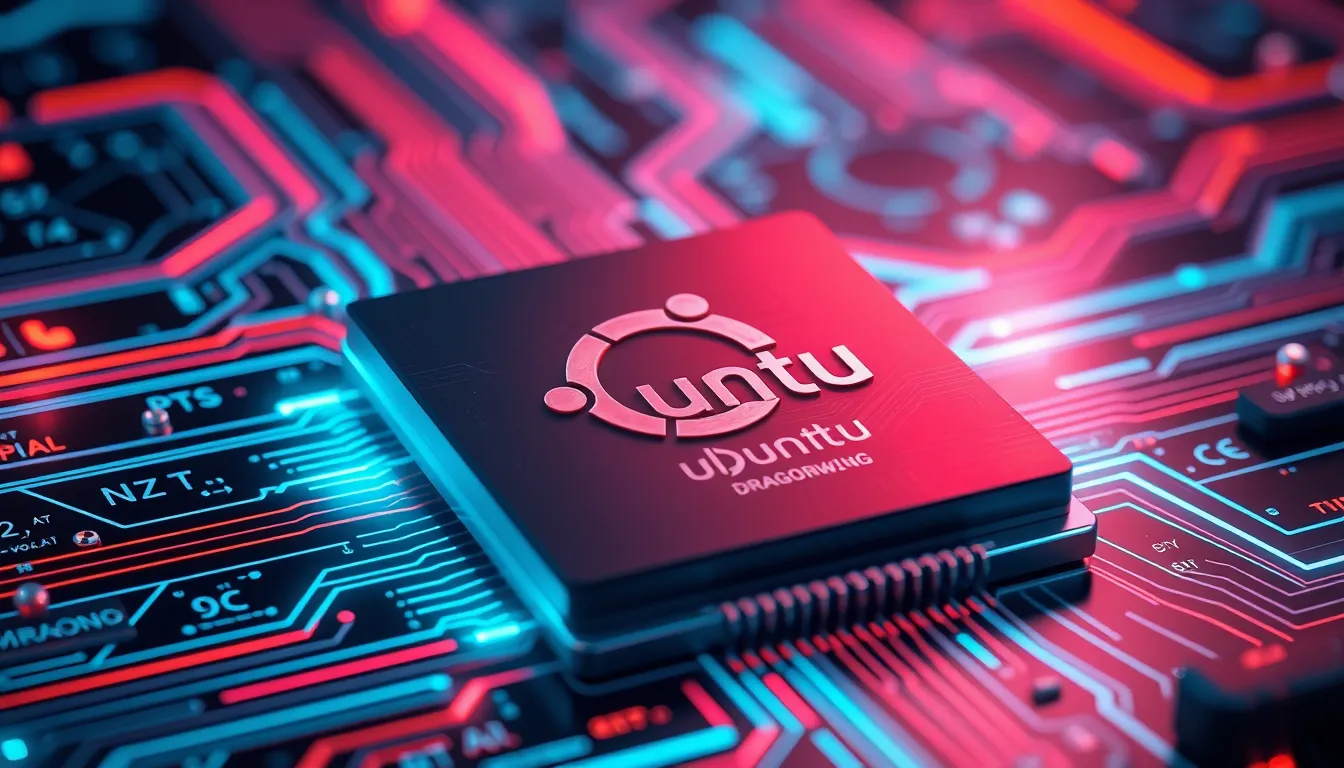Now Reading: Revolutionary Edge Computing: Ubuntu on Qualcomm Dragonwing
-
01
Revolutionary Edge Computing: Ubuntu on Qualcomm Dragonwing
Revolutionary Edge Computing: Ubuntu on Qualcomm Dragonwing

Revolutionary Edge Computing: Ubuntu on Qualcomm Dragonwing
The advent of advanced technologies in today’s digital ecosystem is reshaping how we perceive computing. In particular, the collaboration between Canonical and Qualcomm is transforming the landscape with edge computing Ubuntu on Qualcomm Dragonwing. This breakthrough combines a robust Linux distribution with innovative chip technology, setting a new benchmark in real-time data management and artificial intelligence at the edge.
Overview of Edge Computing
Edge computing has become a cornerstone for modern technology solutions with its promise of processing data closer to the source. This methodology reduces latency, enhances efficiency, and supports real-time analytics, making it a natural fit for industries like autonomous vehicles, smart manufacturing, and IoT applications. With the focus on edge computing Ubuntu on Qualcomm Dragonwing, developers gain an optimally configured Linux distribution that powers next-generation edge AI solutions.
- Reduced latency by processing data near the source
- Enhanced reliability and real-time analytics
- Streamlined operations through decentralized data processing
These features not only boost performance but also enable sophisticated AI applications. Companies leveraging this technology find themselves better equipped to handle complex computational tasks outside centralized data centers.
The Canonical and Qualcomm Collaboration
Canonical, renowned for its Ubuntu distribution (visit the official website), has partnered with Qualcomm, a leader in chip innovation (learn more). This strategic alliance aims to optimize Linux for edge environments by harnessing the power of Ubuntu on Qualcomm Dragonwing edge AI chips. The collaboration bears significant importance amid rising demands for rapid data processing and real-time decision-making in a dispersed network of smart devices.
- Energy-efficient performance in even the most constrained devices
- Enhanced security through robust protocols like secure boot and containerization
- Seamless cloud integration that supports a wide array of applications
This initiative not only reinforces the potential of edge devices but also showcases an ecosystem where hardware and software coalesce harmoniously to tackle modern computational challenges.
Empowering Real-Time Analytics and Edge AI
In an era dominated by artificial intelligence at the edge, the role of advanced analytics is indispensable. The new platform provides powerful tools that enable real-time analytics, directly impacting sectors from smart city management to industrial automation. With edge computing Ubuntu on Qualcomm Dragonwing, businesses can harness the advantages of optimized performance along with the agile deployment of AI techniques.
Furthermore, this collaboration ensures that even resource-constrained setups benefit from advanced capabilities of edge AI. It builds on a future where distributed computing resources are pivotal in transforming everyday devices into intelligent, self-sufficient entities. For example, in smart manufacturing, the integration of edge computing Ubuntu on Qualcomm Dragonwing contributes to increased precision, faster response times, and improved overall productivity.
Dedicated Sub-Sections for Niche Applications
Ubuntu on Qualcomm Dragonwing Edge AI Chips
This dedicated section emphasizes the role of Ubuntu on Qualcomm Dragonwing edge AI chips. The optimized Linux distribution pushes the boundaries for what is achievable on the edge, running AI models efficiently and effectively. For developers looking to implement edge AI solutions, this platform acts as a robust base, capable of managing the rigors of real-time, decentralized data processing.
Decentralized Data Processing in Edge Computing
Decentralized data processing is a key pillar supporting the wide adoption of edge computing. For many industries, the ability to process data locally rather than through a centralized data center drastically reduces latency and improves operational efficiency. With the integration of edge computing Ubuntu on Qualcomm Dragonwing, there is a seamless shift towards decentralized models that foster dynamic and secure data operations across a variety of devices.
Benefits and Future Prospects
The impact of this technological advancement extends well beyond the immediate benefits. The fusion of edge computing Ubuntu on Qualcomm Dragonwing is set to accelerate the development of innovative applications, from edge AI and real-time analytics to advanced automation and smart city infrastructure. The benefits of this integration include:
- Improved resource management and energy efficiency
- Accelerated delivery of real-time insights
- Stronger security protocols for edge environments
- Scalability that supports a growing network of connected devices
Moreover, industry experts applaud the collaboration as it paves the way for future progress in the world of edge computing. The combined potential of Canonical’s Ubuntu and Qualcomm’s Dragonwing chips is an invitation for developers, engineers, and businesses to explore new avenues in advancing technology. This edge computing Ubuntu on Qualcomm Dragonwing model is a testimony to the possibilities when two industry leaders come together, ensuring that the latest innovations reach every corner of the digital landscape.
Conclusion
In conclusion, the revolution in edge computing guided by Ubuntu on Qualcomm Dragonwing is a game-changer for modern technology ecosystems. Canonical and Qualcomm, with their combined expertise, have created a platform that not only meets the rising demands of edge AI and real-time analytics but also fosters the next generation of decentralized data processing. As industries continue to evolve, the use of this innovative edge computing Ubuntu on Qualcomm Dragonwing technology will play a central role in powering transformative digital experiences and ensuring competitive advantages in a rapidly advancing world.
Adopting this cutting-edge solution means embracing the future of computing, where real-time analytics, energy-efficient processing, and robust security measures work together to facilitate smarter, safer, and more connected environments for all.

























